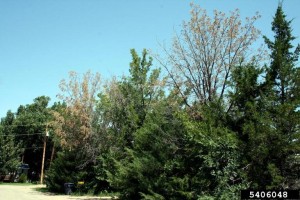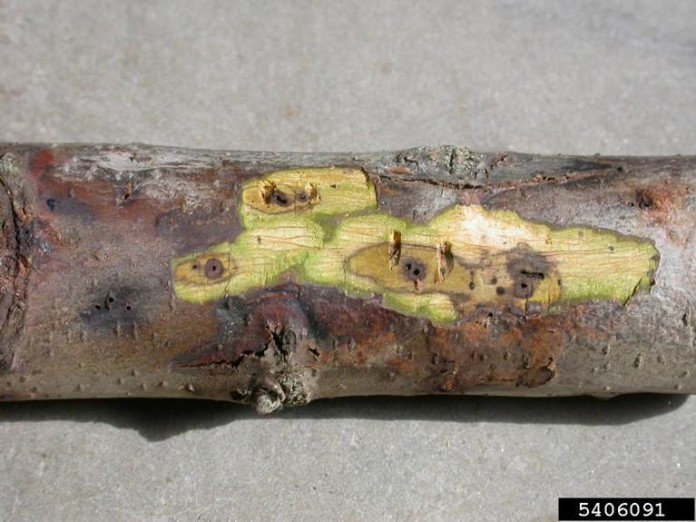
CHARLESTON, W.Va. — The state of West Virginia has established an exterior quarantine, effective immediately, to help protect the West Virginia walnut resource from Thousand Cankers Disease (TCD).
“Simply put, the exterior quarantine means no plants and plant parts of walnut from the states of Arizona, California, Colorado, Idaho, Nevada, New Mexico, Oregon, Utah and Washington and any portions or areas of states where TCD has been found can be brought into or through West Virginia,” said West Virginia Department of Agriculture Plant Industries Division Director Sherrie Hutchinson.
Exclusions to the quarantine include nuts, nut meats, hulls, processed lumber and finished wood products without bark such as furniture, instruments and gun stocks. Processed lumber must be 100% bark-free and kiln-dried with squared edges.
What is it?

TCD is a disease complex where the fungus is vectored by walnut twig beetles causing small cankers under the bark of walnut trees. The fungus is introduced when the beetles infest walnut trees.
Trees are killed when cankers become numerous enough to merge together — there is no cure once a tree is infected.
West Virginia Ag Commissioner Walt Helmick said black walnut is a valuable timber and nut resource in the state, and the quarantine is a step toward slowing its entrance into the state.
Thousand Cankers disease no longer occurs just west of the Mississippi River. It can be found in parts of North Carolina, Tennessee and Virginia. In Pennsylvania, On Aug. 9, 2011, the state department of agriculture in cooperation with the U.S. Department of Agriculture and Penn State Cooperative Extension confirmed the presence of Thousand Cankers Disease in black walnut trees in Bucks County.
The quarantine also includes the TCD fungus, the walnut twig beetle in any life stage and any hardwood firewood from TCD-infected areas.
For more information on TCD, visit www.thousandcankers.com or contact the WVDA Plant Industries Division at 304-558-2212.
About thousand cankers disease
Thousand cankers disease (TCD) is a disease complex native to the western United States and primarily affects black walnut, Juglans nigra. This disease is the result of the combined activity of a fungus (Geosmithia morbida) and the walnut twig beetle (Pityophthorus juglandis).
Thousand cankers disease currently threatens millions of black walnut trees in forests and urban areas, an important species with great economic and ecological value throughout its native range. Several quarantines have been established in an attempt to prevent the disease from spreading.













